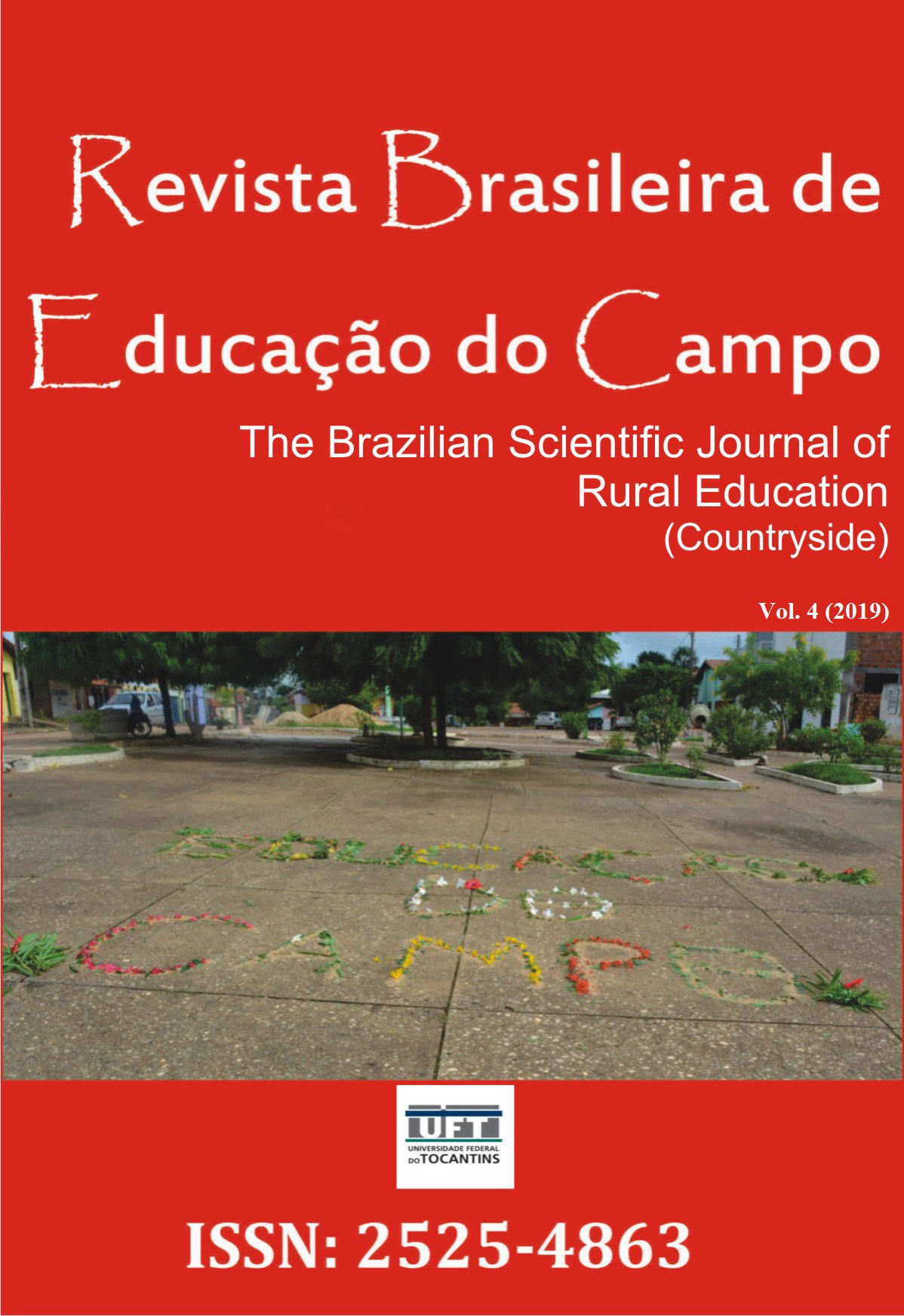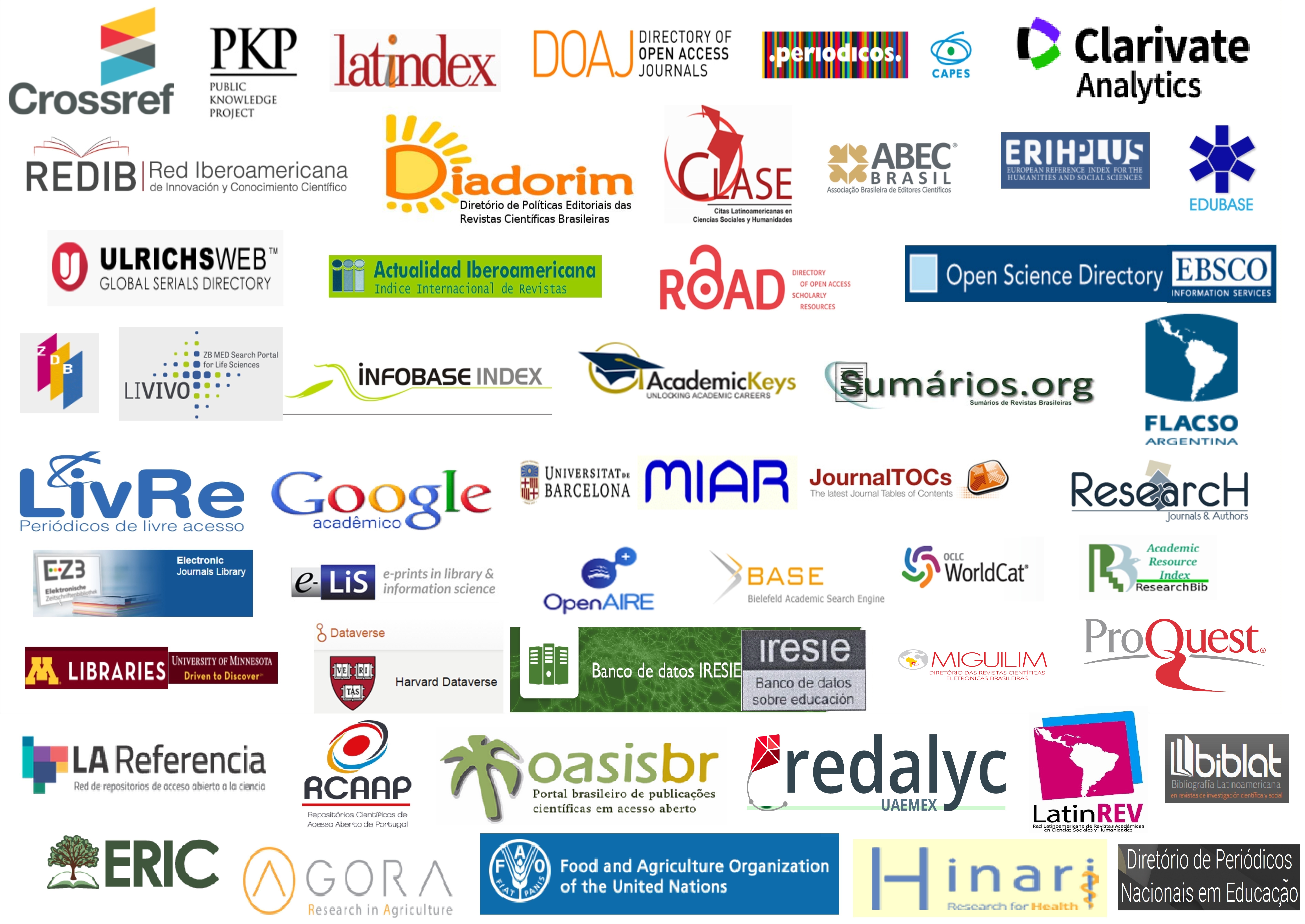Desruralização escolar: um estudo sobre o fechamento de escolas do campo em um município do Estado do Rio de Janeiro
DOI:
https://doi.org/10.20873/uft.rbec.v4e5906Resumo
O artigo apresenta um estudo sobre a desativação e a extinção de escolas do campo situadas no Município de Cachoeiras de Macacu (região metropolitana do Estado do Rio de Janeiro), enfocando também o impacto do projeto de construção da barragem do Rio Guapiaçu nesse processo. Os dados analisados demonstram que na região rural de Cachoeiras de Macacu, entre 1983 e 2016, foram desativadas ou extintas 35 escolas, dentre as quais 8 estaduais e 27 municipais ou municipalizadas. Partindo da discussão sobre a mudança do perfil populacional e a perimetropolização do município, analisamos o contexto em que se processa a desruralização escolar. Constatamos que o transporte dos estudantes para áreas urbanas configura uma estratégia administrativa de “otimização” escolar e que o projeto da barragem do Rio Guapiaçu acentuou essa orientação na região da Serra Queimada. Considerando que “a identidade da escola do campo é definida pela sua vinculação às questões inerentes à sua realidade” (Brasil, 2012), entendemos que o fechamento de escolas do campo assinala a invisibilização das populações campesinas, cujos saberes e modos de vida são tomados como inexistentes. Dessa forma, elas são radicalmente excluídas da sociedade civil (Santos, 2007).
Palavras-chave: Educação do Campo, Fechamento de Escolas, Transporte Escolar, Relações Campo-Cidade, Barragem.
School desruralization: a study on the closure of rural schools in a municipality of the State of Rio de Janeiro
ABSTRACT. This paper presents a study about the deactivation and the extinction of rural schools located in the municipality of Cachoeiras de Macacu (Rio de Janeiro State Metropolitan Region), focusing on the impact of the construction of the Guapiaçu River dam in this process. The data analyzed show that in the rural region of Cachoeiras de Macacu, between 1983 and 2016, 35 schools were deactivated or extinguished, of which 8 were administered by the state and 27 by the municipality. Starting from the discussion of the changing of the population profile and the perimetropolization of the municipality, we analyze the school desruralization process. We noticed that the transportation of students to urban areas constitutes an administrative strategy for school “optimization” and that the Guapiaçu River dam project accentuated this orientation in the Serra Queimada region. Considering that "the identity of the rural school is defined by its connection with the issues inherent to its reality" (Brazil, 2012), we understand that the closure of rural schools indicates the invisibility of peasant populations, whose knowledge and way of life are taken as nonexistent. In this way, they are radically excluded from civil society (Santos, 2007).
Keywords: Rural Education, Closing of Schools, School Bus, Field-City Relations, Dam.
Desruralización escolar: un estudio sobre el cierre de escuelas del campo en un municipio del Estado de Río de Janeiro
RESUMEN. El artículo presenta un estudio de caso sobre la desactivación y la extinción de escuelas del campo situadas en el Municipio de Cachoeiras de Macacu (región metropolitana del Estado de Río de Janeiro), enfocando el impacto del proyecto de construcción de la represa del Río Guapiaçu en ese proceso. Los datos analizados demuestran que en la región rural de Cachoeiras de Macacu, entre 1983 y 2016, fueron desactivadas o extintas 35 escuelas, de las cuales 8 eran administradas por el estado y 27 por el municipio. Partiendo de la discusión sobre el cambio del perfil poblacional y la perimetropolización del municipio, analizamos el proceso de desruralización escolar. Constatamos que el transporte de los estudiantes para la ciudad configura una estrategia de “optimización” escolar y que el proyecto de la represa del Río Guapiaçu acentuó esa orientación en la Serra Queimada. Considerando que "La identidad de la escuela del campo es definida por su vinculación a las cuestiones inherentes a su realidad" (Brasil, 2012), entendemos que su cierre señala la invisibilización de las poblaciones campesinas, cuyos saberes y modos de vida se toman como inexistentes. De esta forma, son radicalmente excluidas de la sociedad civil (Santos, 2007).
Palabras clave: Educación del Campo, Cierre de Escuelas, Transporte Escolar, Relaciones Campo-Ciudad, Represa.
Downloads
Referências
Alentejano, P. R. (2005). A evolução do espaço agrário fluminense. Niterói (RJ). Recuperado de http://www.geographia.uff.br/index.php/geographia/article/view/179
Andrade, O. (1971). Obras completas 7. Rio de Janeiro: Civilização Brasileira.
Brasil. (2012). Educação do Campo: marcos normativos. Brasília: MEC/SECADI. Recuperado de: http://pronacampo.mec.gov.br/images/pdf/bib_educ_campo.pdf
CONCREMAT Engenharia. (2007). Relatório de Impacto Ambiental - RIMA. Complexo Petroquímico do Rio de Janeiro. Rio de Janeiro. Recuperado de:www.comperj.com.br/Util/pdf/rima.pdf
Coralina, C. (1978). Poemas dos becos de Goiás e estórias mais. Goiânia: Editora da Universidade Federal de Goiás.
Domingues, A. (2011). Viver entre o rio e a cidade. Recuperado de: http://www.projectoposter.info/alvaro-domingues/
Fernandes, E. (2012). Por que eles estudam tão longe? Revista Nova Escola nº 257. São Paulo: Abril.
Instituto Nacional de Colonização e Reforma Agrária - INCRA. (2013). Famílias atingidas pela barragem do Guapiaçu serão reassentadas no Rio de Janeiro. Brasília (DF): INCRA. Recuperado de: http://www.incra.gov.br/familias-atingidas-pela-barragem-do-guapiacu-serao-reassentadas-no-rio-de-janeiro
Instituto Nacional de Colonização e Reforma Agrária - INCRA. (2017). Relatório de assentamentos - Superintendência Regional Rio de Janeiro. Brasília (DF): INCRA. Recuperado de:http://painel.incra.gov.br/sistemas/index.php
Instituto Nacional de Estudos e Pesquisas Educacionais Anísio Teixeira - INEP. (2017). Sinopse Estatística da Educação Básica 2016. Brasília: INEP. Recuperado de http://portal.inep.gov.br/sinopses-estatisticas-da-educacao-basica
Instituto Nacional de Estudos e Pesquisas Educacionais Anísio Teixeira - INEP. (2018). Sinopse Estatística da Educação Básica 2017. Brasília: INEP. Recuperado de http://portal.inep.gov.br/sinopses-estatisticas-da-educacao-basica
Kremer, A. (2010). A nucleação escolar e o processo de desenraizamento nas comunidades rurais do município de Bom Retiro/SC. In Anais do I Seminário de pesquisa em Educação do Campo. Universidade Federal de Santa Catarina. Florianópolis, Santa Catarina, Brasil.
Lei nº 12.960, de 27 de março de 2014. (2014, 28 de março). Altera a Lei no 9.394, de 20 de dezembro de 1996, que estabelece as diretrizes e bases da educação nacional, para fazer constar a exigência de manifestação de órgão normativo do sistema deensino para o fechamento deescolas do campo, indígenas e quilombolas. Recuperado de: http://www2.camara.leg.br/legin/fed/lei/2014/lei-12960-27-marco-2014-778312-publicacaooriginal-143651-pl.html
Machado, F. S. (2013). Agricultura e reestruturação espacial na interface rural-urbana: o exemplo do município de Cachoeiras de Macacu (RJ) (Dissertação de Mestrado). Universidade Federal do Rio de Janeiro, Rio de Janeiro, Brasil.
Ministério da Educação - MEC. (2017) Portal do FNDE. Brasília: MEC. Recuperado de https://www.fnde.gov.br/#content
Ministério da Educação - MEC. (2018) Programa Novo Mais Educação. Brasília: MEC. Recuperado de http://portal.mec.gov.br/programa-mais-educacao
Paludo, D. F., Eger, D., Cuin, D., Barcelos, E. A. S., Chuva, L., Santos, L. H. R., ... & Costa, P. D. (2014). Relatório sobre a proposta de construção da Barragem no Rio Guapiaçu – Cachoeiras de Macacu, Rio de Janeiro. Rio de Janeiro: Associação de Geógrafos do Brasil/ GT Agrária.
Pessoa, J. M. (2006). Educação e Ruralidades: por um olhar pesquisante plural. Goiânia: Editora da UFG.
Prefeitura Municipal de Cachoeiras de Macacu. (2006). Lei no. 1.653. Plano diretor do Município de Cachoeiras de Macacu. Recuperado de https://www.cachoeirasdemacacu.rj.gov.br/plano-diretor/lei_1653_parte_01.pdf e https://www.cachoeirasdemacacu.rj.gov.br/plano-diretor/lei_1653_parte_02.pdf
Santos, B. S. (2007). Renovar a teoria crítica e reinventar a emancipação social. São Paulo: Boitempo.
Secretaria Municipal de Educação de Cachoeiras de Macacu. (2010). Resolução n.o.8 de 12 de julho de 2010 (2010, 17 de agosto). Diário Oficial de Cachoeiras de Macacu, Ano VII, Edição 304.
Publicado
Como Citar
Edição
Seção
Licença
Proposta de Aviso de Direito Autoral Creative Commons
1. Proposta de Política para Periódicos de Acesso Livre
Autores que publicam nesta revista concordam com os seguintes termos:
a. Autores mantém os direitos autorais e concedem à revista o direito de primeira publicação, com o trabalho simultaneamente licenciado sob a Licença Creative Commons Attribution que permite o compartilhamento do trabalho com reconhecimento da autoria e publicação inicial nesta revista.
b. Autores têm autorização para assumir contratos adicionais separadamente, para distribuição não-exclusiva da versão do trabalho publicada nesta revista (ex.: publicar em repositório institucional ou como capítulo de livro), com reconhecimento de autoria e publicação inicial nesta revista.
c. Autores têm permissão e são estimulados a publicar e distribuir seu trabalho online (ex.: em repositórios institucionais ou na sua página pessoal) a qualquer ponto antes ou durante o processo editorial, já que isso pode gerar alterações produtivas, bem como aumentar o impacto e a citação do trabalho publicado (Veja O Efeito do Acesso Livre).
Proposal for Copyright Notice Creative Commons
1. Policy Proposal to Open Access Journals
Authors who publish with this journal agree to the following terms:
A. Authors retain copyright and grant the journal right of first publication with the work simultaneously licensed under the Creative Commons Attribution License that allows sharing the work with recognition of its initial publication in this journal.
B. Authors are able to take on additional contracts separately, non-exclusive distribution of the version of the paper published in this journal (ex .: publish in institutional repository or as a book), with an acknowledgment of its initial publication in this journal.
C. Authors are permitted and encouraged to post their work online (eg .: in institutional repositories or on their website) at any point before or during the editorial process, as it can lead to productive exchanges, as well as increase the impact and the citation of published work (See the Effect of Open Access).














